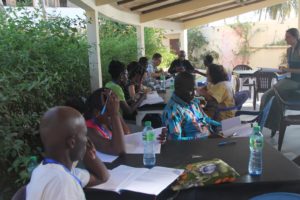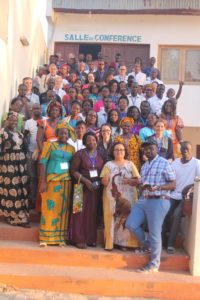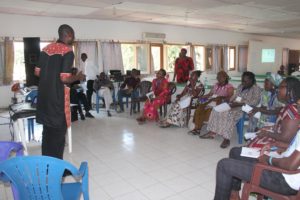 A virus or bacteria can make us sick. Behavior, such as smoking or poor nutrition, can also cause illness, which is why lifestyle medicine is on the rise. It is a revelation to many Senegalese physicians, health care students, and nurses that our values and underlying belief systems and culture can also influence disease. This year, our annual conference of the Foundation for Christians in Healthcare is about worldview and the Biblical view of illness and health. As one of the founders of this movement, the conference for me (Tabitha) is always a highlight of the year.
A virus or bacteria can make us sick. Behavior, such as smoking or poor nutrition, can also cause illness, which is why lifestyle medicine is on the rise. It is a revelation to many Senegalese physicians, health care students, and nurses that our values and underlying belief systems and culture can also influence disease. This year, our annual conference of the Foundation for Christians in Healthcare is about worldview and the Biblical view of illness and health. As one of the founders of this movement, the conference for me (Tabitha) is always a highlight of the year.
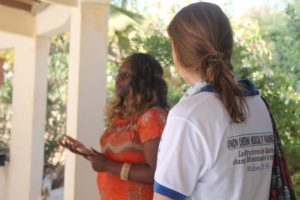
Fatalism is a fundamental and deep value in Senegalese culture: the evil or illness that befalls you has been done to you by an evil force. Many people try to stay healthy in protection against these forces. It means that patients often have little motivation to do something about their own healing. This plays a role especially in chronic diseases: patients do not come to follow-up appointments. In the Christian worldview there are also evil powers, but there is hope in Jesus and we have a responsibility ourselves.
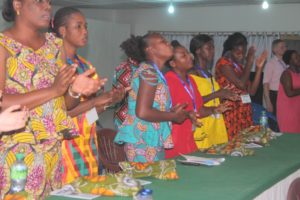
It is good to see that in a country where few Christians live, more and more colleagues are now experiencing their personal calling and indulging in their work. During the conference, a Bible study group was formed from students and a working group for Christian midwives. So the movement expands further. Training is planned for the coming year in emergency care, holistic care and high blood pressure. We can also attend Mercy Ships training courses, such as those on palliative care.
